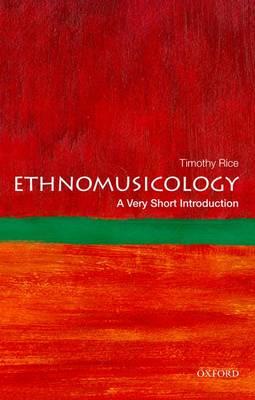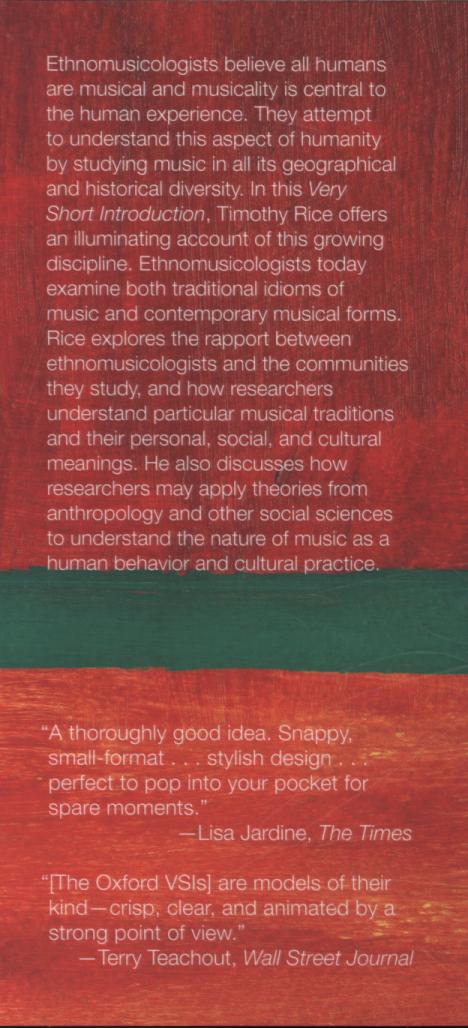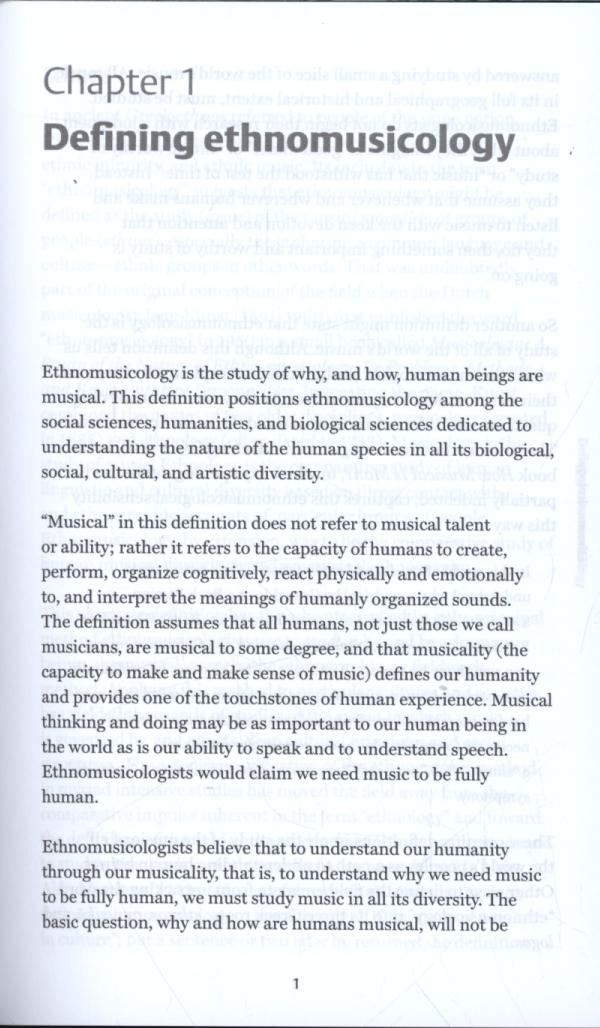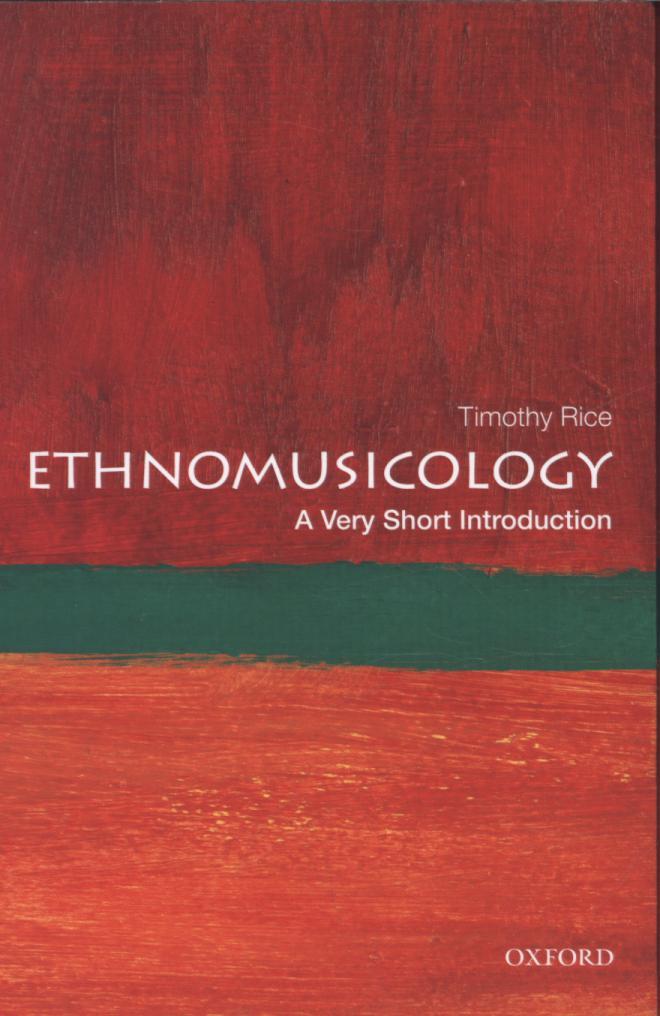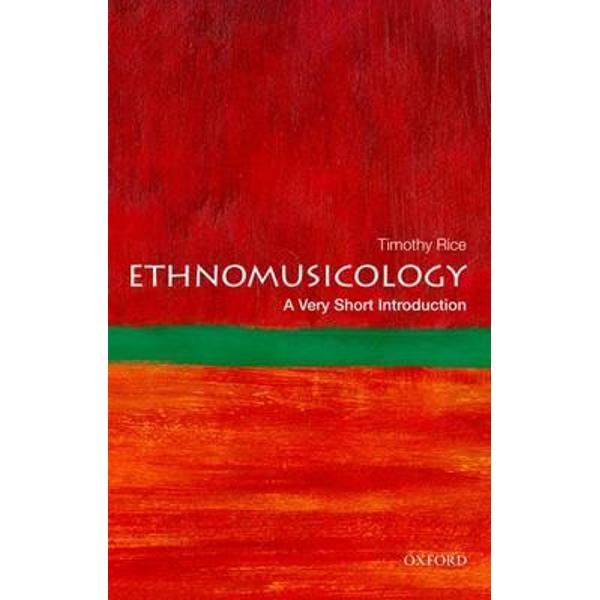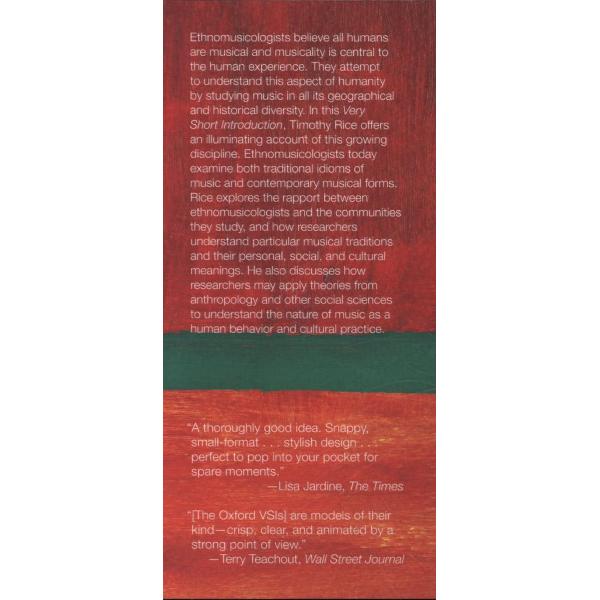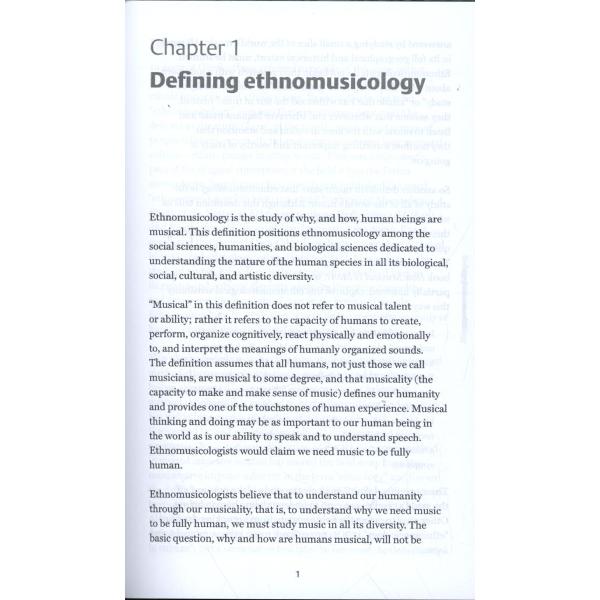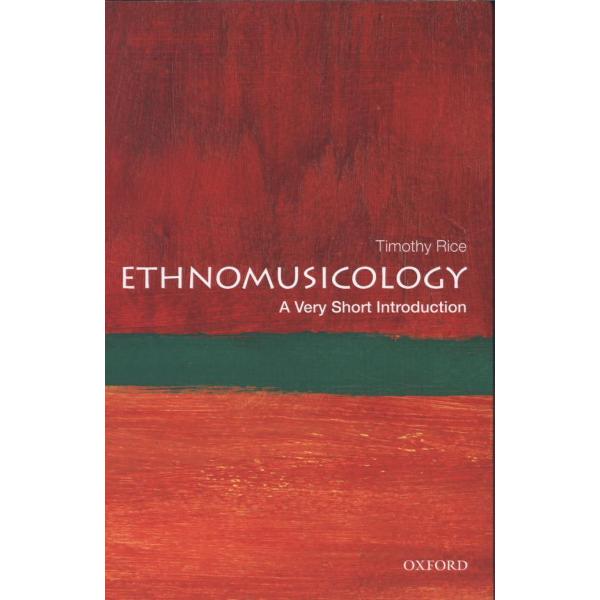Ethnomusicology: A Very Short Introduction
Ethnomusicology: A Very Short Introduction
In this Very Short Introduction, one of the foremost ethnomusicologists, Timothy Rice, offers a compact and illuminating account of this growing discipline, showing how modern researchers go about studying music from around the world, looking for insights into both music and humanity. The reader discovers that ethnomusicologists today not only examine traditional forms of music-such as Japanese gagaku, Bulgarian folk music, Javanese gamelan, or Native American drumming and singing-but
also explore more contemporary musical forms, from rap and reggae to Tex-Mex, Serbian turbofolk, and even the piped-in music at the Mall of America. To investigate these diverse musical forms, Rice shows, ethnomusicologists typically live in a community, participate in and observe and record musical events,
interview the musicians, their patrons, and the audience, and learn to sing, play, and dance. It's important to establish rapport with musicians and community members, and obtain the permission of those they will work with closely over the course of many months and years. We see how the researcher analyzes the data to understand how a particular musical tradition works, what is distinctive about it, and how it bears the personal, social, and cultural meanings attributed to it. Rice also
discusses how researchers may apply theories from anthropology and other social sciences, to shed further light on the nature of music as a human behavior and cultural practice.
About the Series:
Oxford's Very Short Introductions series offers concise and original introductions to a wide range of subjects-from Islam to Sociology, Politics to Classics, Literary Theory to History, and Archaeology to the Bible. Not simply a textbook of definitions, each volume in this series provides trenchant and provocative-yet always balanced and complete-discussions of the central issues in a given discipline o
PRP: 74.08 Lei
Acesta este Pretul Recomandat de Producator. Pretul de vanzare al produsului este afisat mai jos.
66.67Lei
66.67Lei
74.08 LeiLivrare in 2-4 saptamani
Descrierea produsului
In this Very Short Introduction, one of the foremost ethnomusicologists, Timothy Rice, offers a compact and illuminating account of this growing discipline, showing how modern researchers go about studying music from around the world, looking for insights into both music and humanity. The reader discovers that ethnomusicologists today not only examine traditional forms of music-such as Japanese gagaku, Bulgarian folk music, Javanese gamelan, or Native American drumming and singing-but
also explore more contemporary musical forms, from rap and reggae to Tex-Mex, Serbian turbofolk, and even the piped-in music at the Mall of America. To investigate these diverse musical forms, Rice shows, ethnomusicologists typically live in a community, participate in and observe and record musical events,
interview the musicians, their patrons, and the audience, and learn to sing, play, and dance. It's important to establish rapport with musicians and community members, and obtain the permission of those they will work with closely over the course of many months and years. We see how the researcher analyzes the data to understand how a particular musical tradition works, what is distinctive about it, and how it bears the personal, social, and cultural meanings attributed to it. Rice also
discusses how researchers may apply theories from anthropology and other social sciences, to shed further light on the nature of music as a human behavior and cultural practice.
About the Series:
Oxford's Very Short Introductions series offers concise and original introductions to a wide range of subjects-from Islam to Sociology, Politics to Classics, Literary Theory to History, and Archaeology to the Bible. Not simply a textbook of definitions, each volume in this series provides trenchant and provocative-yet always balanced and complete-discussions of the central issues in a given discipline o
Detaliile produsului








